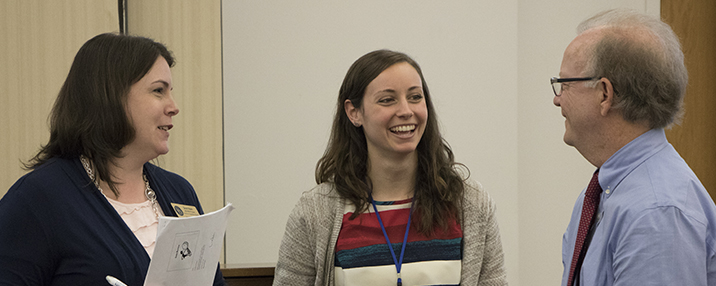To help students with disabilities reach their potential in inclusive learning environments, CDS partners with the Delaware Department of Education to: a) provide coaching and professional development to educators through the ACCESS (Adapting Curriculum and Classroom Environments for Student Success) program, the DE-PBS (Delaware Positive Behavior Support) project and the SEAL (Special Education Administrative Leadership) program; b) offer instruction and encouragement to families invested in their student’s success; and c) support federally funded 21st Century Community Learning Centers.
Adapting Curriculum & Classroom Environments for Student Success (ACCESS)
Providing appropriate instruction and support to all students, including those with significant needs, is true access to education.
To ensure that students with disabilities receive that instruction and support, the CDS-DOE ACCESS project works to expose students to grade-level academic curricula.
ACCESS also develops resources and provides professional development so educators can meet the instructional needs of all students, including those with the most significant intellectual disabilities. To that end, the ACCESS project’s Universal Design for Learning (UDL) initiative enables educators to consider the variability of all students.
And because the ability to communicate allows students to meaningfully participate in their environment, ACCESS’s team-based SPEACS program provides students with communication challenges the supports they need to move from pre-symbolic and emergent communication to symbolic communication.
Delaware Positive Behavior Support (DE-PBS)
Students with disabilities prosper more in schools that feature positive climates and proactive programs that support all students. In those schools, there’s less bullying, an enhanced sense of belonging among students and improved academic performance.
CDS works to foster those environments and outcomes through its implementation of the DE-PBS project, which provides coaching and professional development in school districts. Its goal: instituting a strategic multi-tiered approach that prevents problem behaviors that impede learning. When students need more help, group interventions and individual behavior support plans are available, as are IEPs that address behavior and build social and emotional skills.
Delaware School Climate Surveys also give schools a way to identify needs and guide improvements by measuring how students, educators and parents perceive areas spanning school safety, positive relationships and bullying.
For more information about DE-PBS, contact Sarah Hearn.
Follow the DE-PBS project on Twitter.
Delaware’s Special Education Administrative Leadership (SEAL) Program
The shortage of appropriately trained special education leaders is problematic nationwide, but even more acute in Delaware. Although a special education director credential exists in Delaware code, fewer than half of current directors are credentialed.
To prepare more special education leaders to take on their ever-evolving roles and responsibilities, the Center for Disabilities Studies, in partnership with other education centers at the University of Delaware and the Delaware Department of Education (DDOE), launched in January 2020 the state’s first special education-specific leadership training program. It offers an alternate route to certification for special education administrators and is supported by a five-year, $1 million grant from the U.S. Department of Education.
Out-of-School Programs
All families should have access to quality out-of-school programs. Whether they’re offered before or after school or during the summer, the programs provide opportunities for additional social and academic learning.
CDS partners with DDOE to support 21st Century Community Learning Centers, federally funded programs designed to give children, particularly students attending high-poverty and low-performing schools, academic enrichment opportunities. 21st CCLCs include partnerships between school districts, community-based and/or faith-based organizations that go through a competitive grant application process.
CDS provides technical assistance to grantees, helping them observe, assess and compile data on their program. The goal for programs is to help students meet academic standards in core subjects, such as reading and math, and provide an array of enrichment activities that support character development and career and college readiness.
For more information about 21st CCLC, contact Teresita Cuevas.

